Industrial Technology
| Some career possibilities: | ||
|---|---|---|
| Contract Coordinator | Cost Estimator | Design Engineer |
| Distributor's Representative | Distribution Supervisor | Drafter |
| Education and Training Manager | Employment Manager | First-line Supervisor |
| Labor Relations Manager | Loss Prevention Manager | Loss Prevention Specialist |
| Management Trainee | Manufacturing Engineer | Mechanical Designer |
| Methods Analyst | Operations Technician | Plant Manager |
| Production Supervisor | Production Manager Trainee | Project Manager |
| Quality Control Technician | Quality Assurance Engineer | Safety Engineer |
| Sales/Service Representative | Sales Manager | Sales Engineer |
| Systems Coordinator | Technical Sales Representative | Technical Writer |
| Test Technician | ||
Industrial technology resulted from the need for skilled persons in technical matters who were also knowledgeable in how to manage resources and personnel. The IT program is designed to educate individuals to function either in direct assistance to an engineer, in supervision of technically productive personnel, or in support capacities. The educational emphasis is very similar to that of an engineer. Industrial technologists can develop areas of specialization within the broader framework of operations knowledge. For example, technologists may specialize in quality control or manufacturing operations.
IT graduates can expect to assist industrial engineers on problems involving the efficient use of personnel, materials, and machines to produce goods and services. They may prepare layouts of machinery and equipment, plan the flow of work, make statistical studies, and analyze production costs. They may also conduct time and motion studies to improve production methods and procedures in manufacturing plants. IT graduates work in all phases of business and industry including research and design, manufacturing sales, customer service, and quality control.
Supplementing your coursework with computer, business, or communications courses may also enhance the marketability of your degree. Interpersonal and managerial skills, as well as technical ability, are important assets for industrial technology majors. An ability to work with computers, particularly computer assisted design and manufacturing, is essential for success in today's marketplace.
Broad areas of employment include:
Design/Development: Focusing on design and development involves creating drawings and sketches of products. Designers assist engineers/scientists in developing models, product samples, and experimental equipment that tests specifications and properties of products. Knowledge of computer design programs is instrumental to the area of product development.
Management: Industrial technology is good preparation for a management career. You may supervise personnel, organize and integrate machines, study materials to increase productivity, and manufacture products more efficiently. The day to day organization and scheduling of employees would be an important part of a management position.
Production: Preparing specifications for materials, devising tests to insure product quality, and studying ways to improve the efficiency of an operation are all part of the process of production. You may also issue orders to manufacture products, check machine loads, and maintain control of master production schedules. Some technicians may work in scheduling departments where they coordinate efficient product delivery to customers. At least initially, you would most likely follow the plans of an engineer or scientist. Another area of employment could be in the area of safety, which may include determining safety standards, understanding safety laws and legal liabilities, and monitoring the manufacture and distribution of products.
Quality Control/Analysis: Technologists working in this area ensure that products are assembled correctly. You may inspect products and processes, conduct tests, and analyze and interpret data. Utilizing sophisticated instruments and computers to check on the quality, consistency, and performance of products is common for industrial technologists working in quality control. You may not only ensure efficient development and manufacture of products, but also effective use of personnel and management policies.
Sales/Marketing: If you work in sales and marketing, you may advertise, sell, and produce information on installation and maintenance of products. Writing specifications and technical manuals for various products is also another possible area of responsibility.
Jobs in industrial technology are more practically oriented, but more limiting in scope than those of engineers or scientists. Technologists apply the theoretical knowledge developed by engineers and scientists to actual production situations.
An internship, part-time, and/or summer employment experience is a plus that will set you apart from other graduates. These types of experiences can broaden your concept of work in the field, help you cultivate a network of professional contacts, give you practical experience to put on your resume, and provide you with a chance to demonstrate your skills to a potential employer. Becoming a member of a professional organization also shows your commitment to the field and provides you with the opportunity to make employment contacts.
Most industrial technology majors do not immediately pursue graduate studies. Working in their field often helps them to determine which area of graduate work they would like to pursue. Industrial technology provides a solid foundation for a variety of graduate programs including business, law, or engineering.
Jobs will be created as business and industry grows, becomes more complex, and expands automation. Jobs in this field are expected to grow as fast as the average for all occupations through 2006. The job market may vary depending on the manufacturing economy in a specific geographic area.










